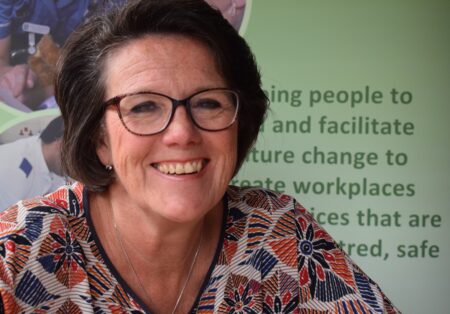Home News & Views When systems and processes get in the way of person-centred care
When systems and processes get in the way of person-centred care

Jo Odell, FoNS Practice Development Facilitator
I’d like to tell a story following on from the last two weeks’ blog themes of using people’s experiences in health and social care. A member of my family recently had a serious but not life-threatening accident and we are very grateful for our NHS and everything that has been done to put him back together. So far, in three weeks, we have had a 999 ambulance, a very painful few hours in accident and emergency, two hospital stays, two trips to surgical theatre and a trip to the GP. Everyone has been so kind and considerate and the recovery looks positive.
However, what we have witnessed, and in some ways experienced from afar, is staff and patients being constrained by systems and processes rather than being enabled. Some examples are:
- The ambulance took him to a hospital that is in a different health board to the one in which he lives. This means a 30-40 min travelling distance for outpatients and when problems have arisen. This means people have to take time off work or an expensive taxi ride. Why can’t his care be transferred closer to home for him?
- The transfer process from hospital to GP care for pain killers took three phone calls and another trip to hospital to collect more drugs, because a box wasn’t ticked on the discharge form.
- Five hours waiting to be discharged when the consultant had given the go ahead for discharge in the morning. Waiting for a letter to be written?
When I listened to a recent webinar, from the King’s Fund, which featured Don Berwick and Michael West, the panel explored amongst other things ‘challenging why we do things’ or having a ‘break the rule’ or ‘challenge the myths’ week. What we need is for staff to feel empowered to be navigators of the systems rather than being rigidly constrained by them. As I have long argued for, staff need time and space away from clinical practice to enable them to think about the ‘ways things are done round here’ and then to work together, collectively, to look at alternative approaches. To be truly person-centred in the way we care for people means that we need to act in person-centred ways with those that are the carers as well as those receiving care.
This is a complex issue and not one that can be readily solved overnight. However I believe both staff and patients, those closest to where care is given and received, hold the solutions. The challenge for our healthcare leaders is to free up some time for the ‘headspace’ and make this the ‘way we do things round here’!
Comments are closed.

